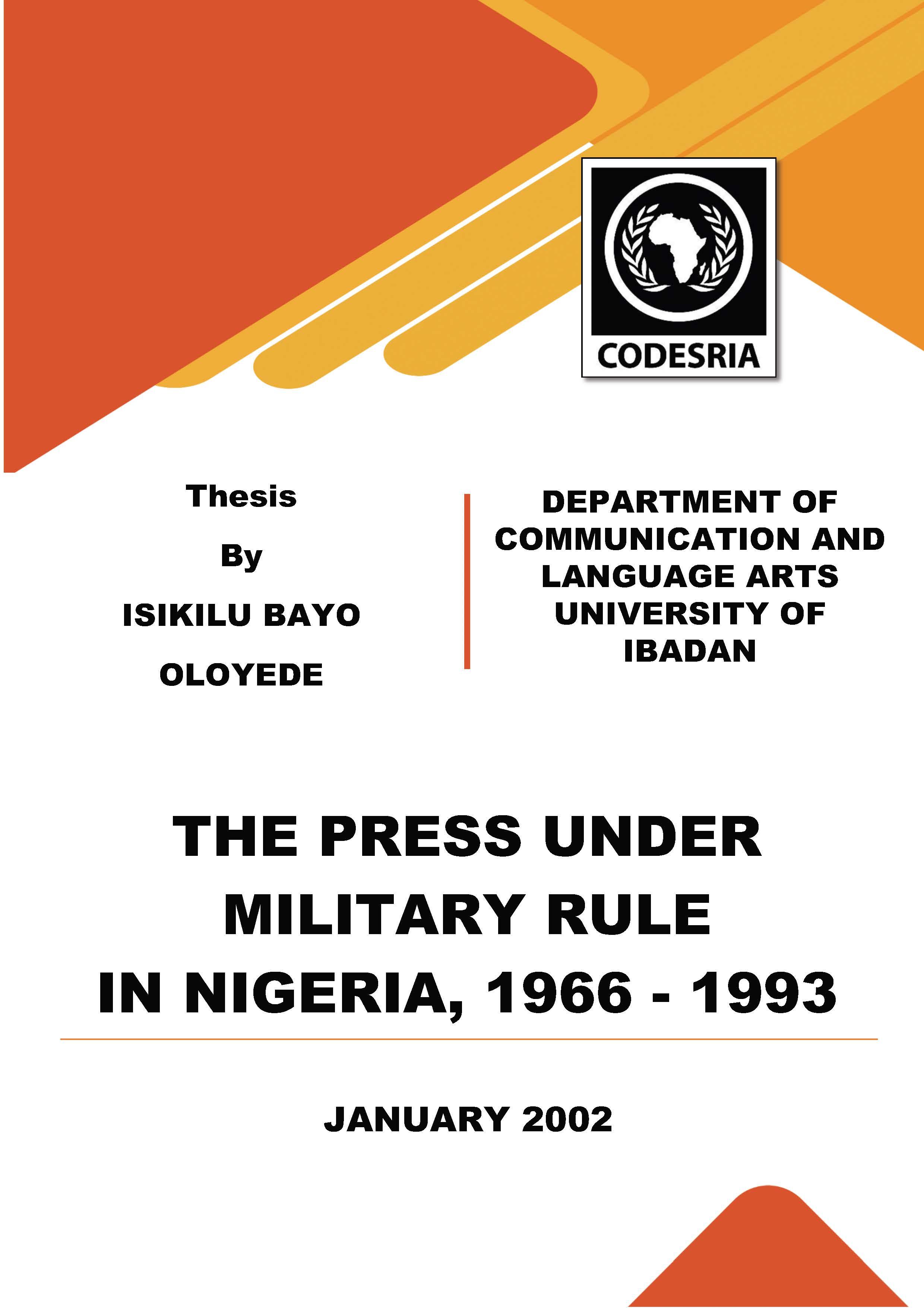THE PRESS UNDER MILITARY RULE IN NIGERIA, 1966 - 1993
Keywords:
press, military, Nigeria, 1966 - 1993Synopsis
This study investigates the relationship between Nige~ian milit,ary governments and the Nigerian press over a 'period of twenty three years. The historical legal study has four objectives: to examine the laws (decrees Jmd edicts) which defined the limits of press freedom during military rule in Nigeria; ta draw together in one document the pertinent Nigerian case law in the area of press freedom during military rule; ta identify and analyse the institutional, legal and non - legal measures and mechanisms utilised by Nigerian military regimes in controlling the press; and to identify ax:id analyse the socio - political factors that influenced or affected press freedom during military rule in Nigeria.
Ta accomplish these objectives, the study analysed the political interaction between five Nigerian military govemments and the press out of which the special legislations affecting the press gradually emerged. It reviewed major reported and unreported cases that came up between the press and the military goverments, delineated the permissible boundaries of press freedom during military rule and traced the evolution of the press legislations of the military era partly as responses to the prevailing socio - political climate.The study found out that four of the five militay regimes studied enacted many repressive legislations which hampered the freedom of the Nigerian press in varying press more during crises tilnes than at normal times. The study also established that the degree of freedom that was granted the press during military rule in Nigeria varied from regime to regime. degrees. All the military govemments also employed various administrative weapons to forcibly contrai the press.
The study concludes that the Nigerian press was granted low degree of freedom by Nigerian military governments; cJ.nd'that the fearlessness and de:fiant dignity of the press in the face of repression helped it to sustain· even this low degree of freedom. It recommends, in line with customary international law, the current tempo of human civilisation and the primary importance of press freedom ta society that any regime must duly, voluntarily respect the freedom of the press or be forced to do sa by bath the press and the public. It also recommends a higher Ievel of professional and ethical performance for the Nigeria)) press in order to enjoy the confidence and, consequently, the collective support of the people against repression.
Downloads
References
Concord Press Ltd. v. Inspector Genéral of Police. Suit No. FHC/L/ CS 608/94
Concord Press Ltd. v. Inspect~r General of Police. (Nov. 10 1993) (Unreported) Dr. Beko Ransome Kuti and 5 Ors. v. Attorney General of the Federation and 3 Ors. (1992) (Unreported)
Dr. Beko Ransome Kuti amd5 Ors. v. Attorney Genera/ of the Federation and 3 Ors. (1992) (ContemptPrnceedings) (Unrèported)
Dr. Glu Onagoruwa v. Major-General Ibrahim Babangida (President of the Federal Republic of Nigeria) and the Attorney-General of the Federation. (Suit No. LD/ 658/87); (1987) 1 NLR 254
E.O. Lakanmia,ndAnor. ,~ Attorney-General (West) and Ors. (Suit No. SC58/69); 1971;
IBLR (Vol. 1) (UnifePress, Ile-Ife).
Guardian Ne1,,vspapers Ltd and 6 Ors. v. Attorney-Generalof Lagos State and AttorneyGeneral of the Federation. (1991) (Unreported)






